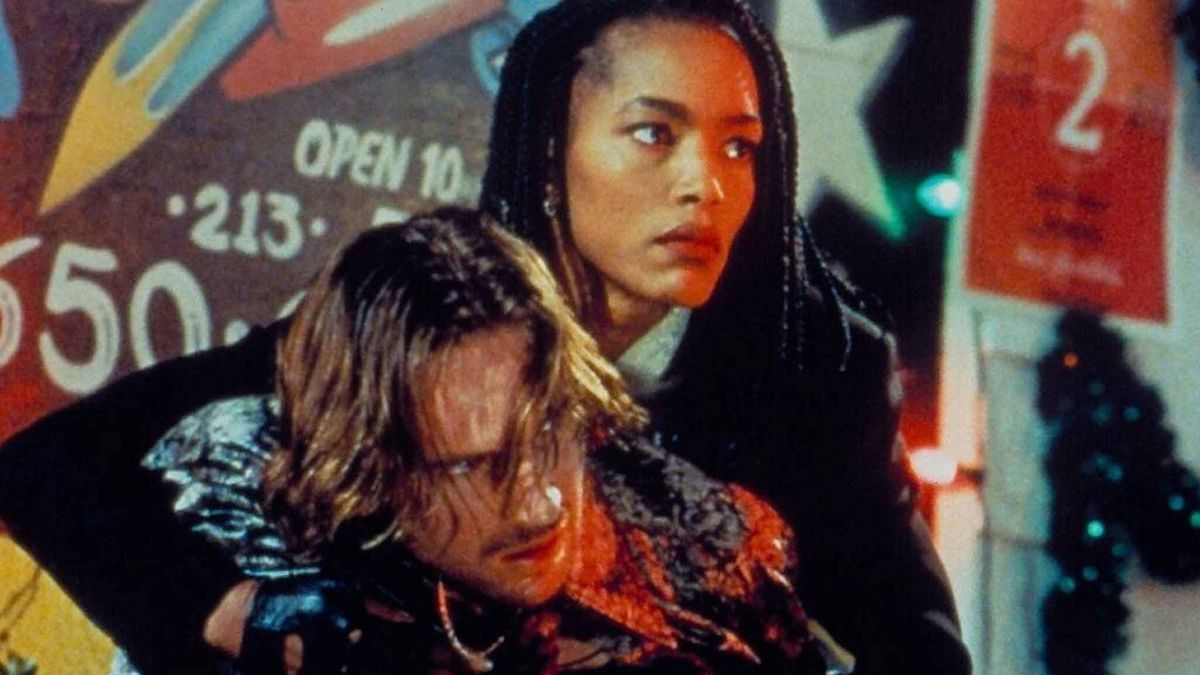Hitchcock's Vertigo is a clear antecedent, with Bassett playing Midge to Fiennes's Scottie obsessing over Juliette Lewis's Madeleine. Bigelow allows Fiennes to come to his senses, and ends her film on a moment of hope for humanity – with a kiss between Bassett and Fiennes that broke ground in the portrayal of interracial romantic relationships. Fiennes is brilliant (and quite sexy) in the role, and Bassett is cool and fierce. Both actors together bring a lot of soul to an otherwise rather grubby film.
Because Strange Days doesn't shirk from rubbing the sleaze and violence of its pre-millennial tension society almost literally in our faces. We've pushed further than Hitchcock in Psycho – there are fewer cutaways now. Post-Halloween, audiences are permitted into the minds and perspectives of rapists and serial killers. But the film's references to past cinema history flattens out any sense of outrage you might feel. The point Bigelow seems to be making is that films have always had this dark undercurrent to them – presenting the possibility of experiencing forbidden things, whether violent or sexual.
The other motivating force behind the film is Bigelow's observations of the 1992 Los Angeles riots, which led her to depict her future LA as a police state with the black community on the brink of revolution. What's interesting is that the supposed conspiracy at the heart of government to oppress the people turns out to be a mirage – instead the renegade cops turn out to be a bunch of bad apples. Indeed, Bassett's salvation is placed in the hands of a very traditional authority figure – an old, white, male police commissioner, who proves incorruptable in the end and arrests the perps. Ultimately the system remains in place. the revolution is held in check and the New Year party keeps going. The tension between the two sides remains in place, and like 'playback' vs real life, the film refuses to throw its weight behind one or the other.



No comments:
Post a Comment